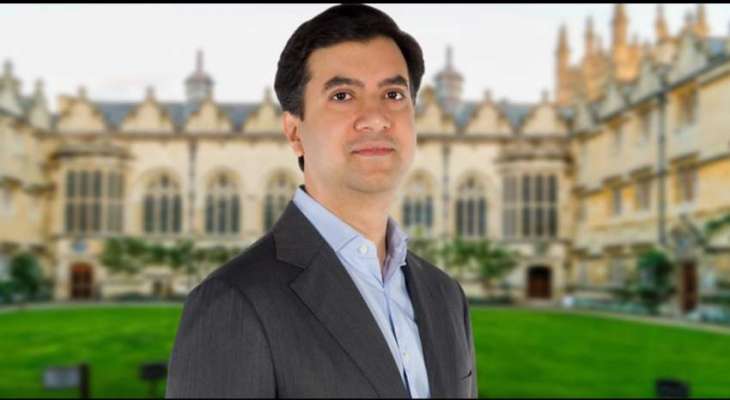Elaborating on the outcomes of the current growth rate, Ali shared that at current growth and policy, our share of world prosperity would stay the same and would be shared among more people due to the growth in population. This means that Pakistani citizens will not be as better off as those of peer countries.
ISLAMABAD: (UrduPoint/Pakistan Point News-Dec 7th, 2022) Former Pakistan Ambassador to the United States Ali J. Siddiqui said that while Pakistan would be 3.5 percent more prosperous in the next 25 years if it maintained its current GDP growth rate of 5 percent annually, it will still be substantially behind the growth rate of its peer nations. In comparison, Iran is expected to grow by 6 times, and Bangladesh is projected to grow by 12 times in the same period.
Elaborating on the outcomes of the current growth rate, Ali shared that at current growth and policy, our share of world prosperity would stay the same and would be shared among more people due to the growth in population. This means that Pakistani citizens will not be as better off as those of peer countries. “Marginal changes at this point will not bring significant change in our citizen’s quality of life,” he said.
Emphasizing that an improving growth rate was the only solution to steer the country out of economic turmoil, he said that this could only be ensured through a ‘dramatic and thoughtful’ redesign of all economic policies, including tax and public funds.
"Effective and comprehensive economic policies are need of the hour to lead Pakistan to grow in the next 25 years," the former Ambassador said while addressing a session titled ‘Pakistan at 100’ at the 3rd Annual Margalla Dialogue, which was held in Islamabad.
President Dr. Arif Alvi, Prime Minister Shahbaz Sharif, Former COAS General Qamar Javed Bajwa, Finance Minister Ishaq Dar, Federal Minister Javed Jabbar, and many others were present on the occasion.
Scholars, public figures, foreign dignitaries, and policymakers from home and abroad take part in the Margalla Dialogue, organized annually by the Islamabad Policy Research Institute (IPRI), which is regularly held to deliberate on practical solutions for Pakistan to deal with critical national, regional and global issues and challenges.
The session was held at a moment when Pakistan's economy was undergoing a turbulent situation and its growth remains a subject of public interest at various forums including national and international levels.
He contended that by the time Pakistan is 100, its population would be 55% more than today and all these other countries would be between 10 and 20 percent larger so they would share the resources and their growth amongst fewer people as compared to Pakistan.
This means that Pakistan will only be able to spend a fraction of what its peers spend on healthcare, education, nutrition, basic necessities, or improvement in life span and quality of life by the time it turns 100.
"Although we are decades behind, consistent efforts for the next 25 years can significantly fill this gap," Ali Siddiqui said, emphasizing upon tax reforms and many other different areas.
Ali J. Siddiqui has also served in various business and government advisory councils, policy institutions, and commercial entities, including JS Bank.
"It's need of the hour that we must take steps for thoughtful redesigns of all of our economic policies including tax and public finances," he added.




